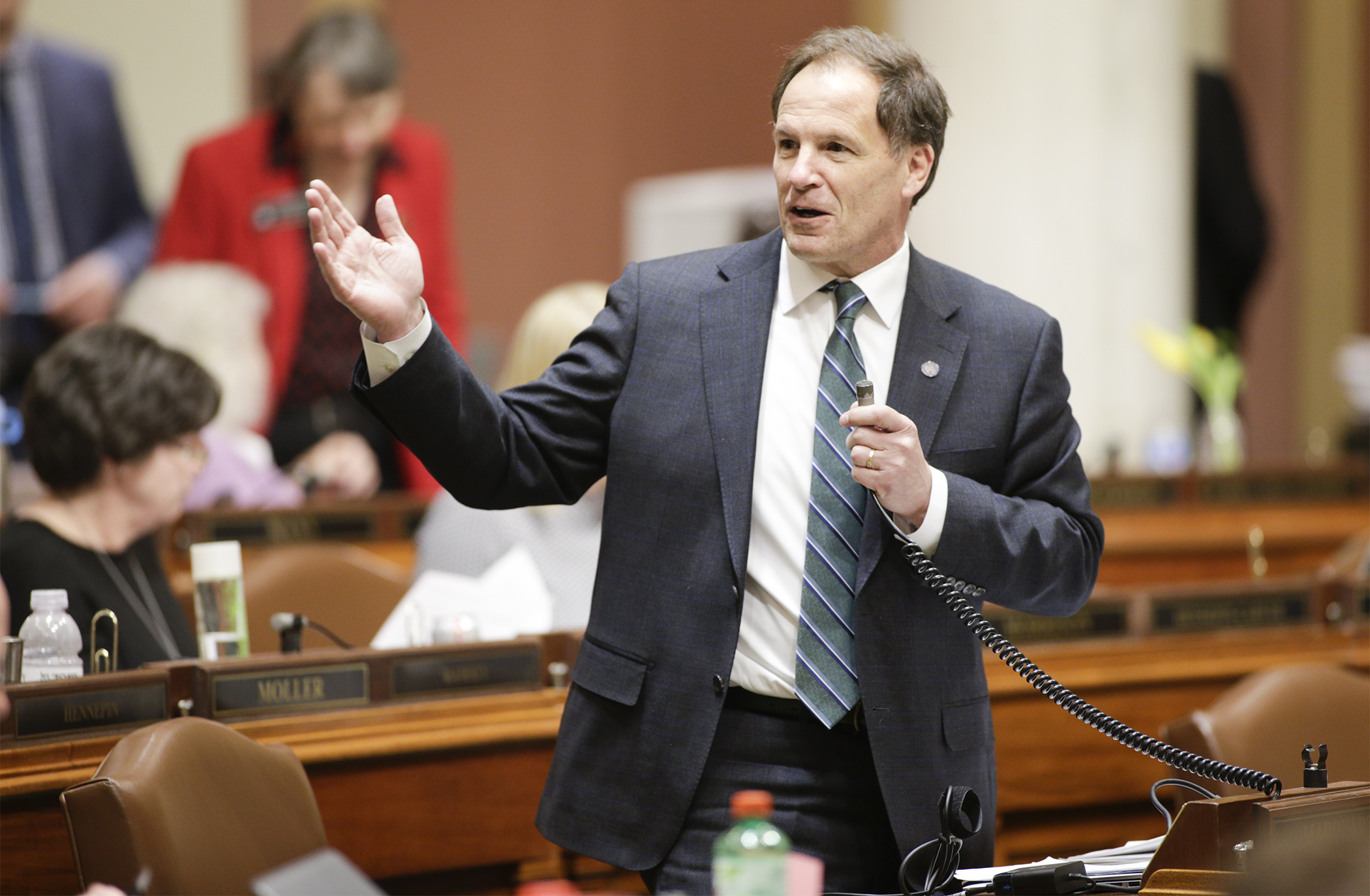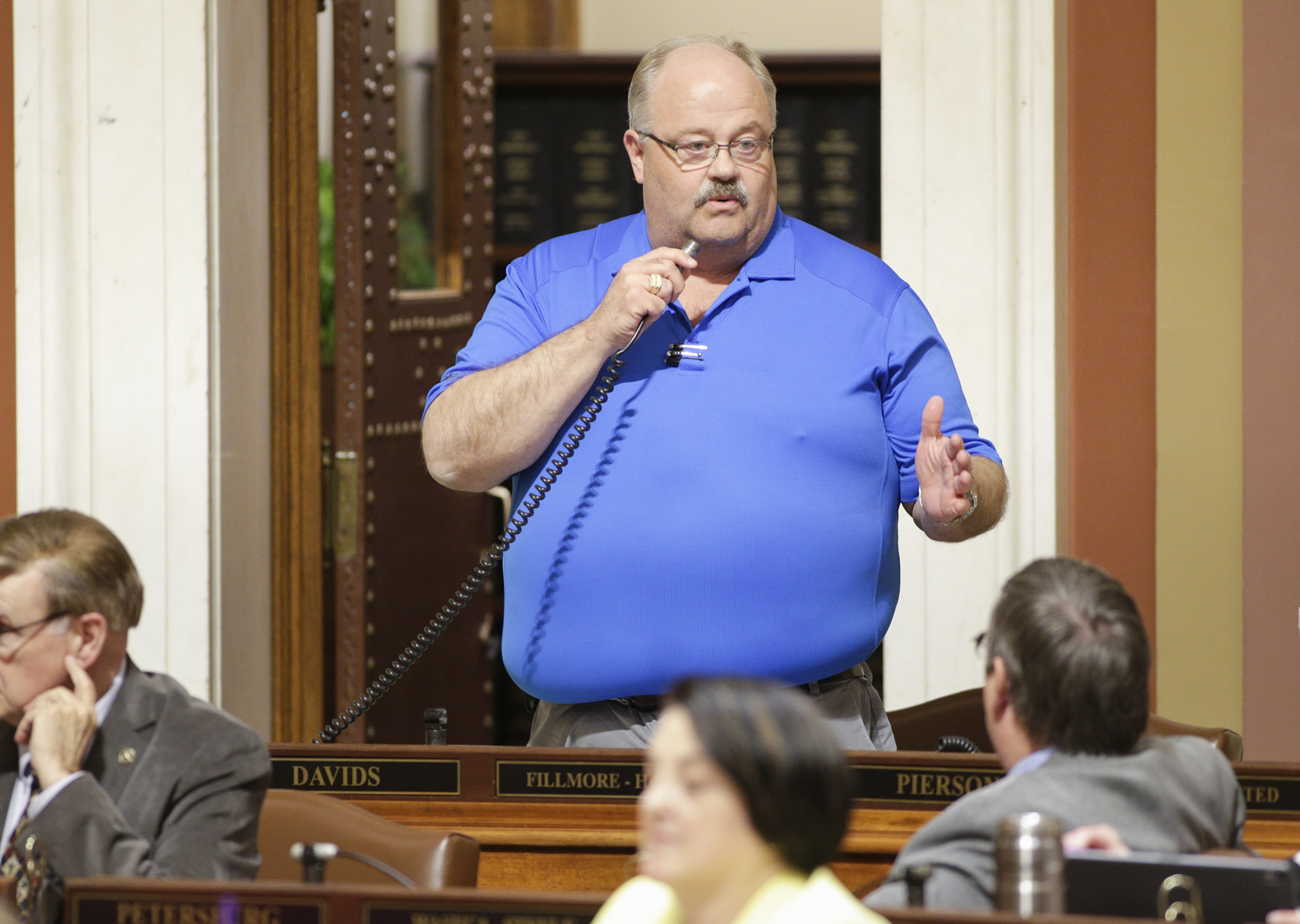House puts money where its programs are by approving omnibus tax bill

Now for the revenue side of the ledger.
Amid a week full of discussions about expenditures for education, health and human services, and transportation, the House took up the issue of how to pay for them Thursday evening. After over two hours of discussion and the consideration of several amendments, the omnibus tax bill was passed 74-55.
Rep. Paul Marquart (DFL-Dilworth), the House Taxes Committee chair, introduced HF2125, as amended, as a bill that would simplify filing, provide tax cuts to “working families, seniors and farmers,” and “provides the investments that improve people’s lives.”
The bill is very similar to what was presented to committee April 9. It brings state tax policy into conformity with most of the demands of the federal Tax Cuts and Jobs Act signed into law in 2017.
The Department of Revenue estimates that, if the bill were adopted, total General Fund tax revenues would come to $46.06 billion for the next biennium, with $3.74 billion in property tax refunds, aids and credits returned to taxpayers.
One way the bill would raise revenue is by adopting what Marquart described as “a new tool” offered to the state by the federal government: global intangible low taxed income. It’s a means by which the state can recapture tax revenue that’s being hidden by corporations in foreign tax havens. Marquart said 26 states have adopted the GILTI provisions.
HF2125 also includes a 3 percent increase in taxes for capital gains over $500,000.
For the average taxpayer, the key provisions in the bill include:
- raising the standard deduction to the federal level of $24,400, which Marquart claims would inspire 93 percent of Minnesota filers to take the standard deduction;
- raising the income level at which taxpayers would pay no taxes (the zero rate) to $32,900, also altering individual income tax brackets to raise the starting point for the second income tier and reducing the starting point for the third tier;
- expanding eligibility for the Working Family Credit, the Homestead Credit and the Renter’s Credit;
- increasing the Social Security subtraction; and
- increasing local government aid and county program aid, which could contribute to lower property taxes.
Two amendments were passed over the course of the debate. While one cleaned up technical language in the bill, the other would alter the allocation for state aid to firefighters in Austin.
Republicans who spoke against the bill denounced it as raising taxes too much.
“This bill stacks the deck against Minnesota families to enrich the government,” said Rep. Anne Neu (R-North Branch). Rep. Jerry Hertaus (R-Greenfield) said proposed tax increases will fall hardest on those of lowest incomes, percentage-wise.
Migration due to the rate of taxation in Minnesota was a hot topic in the briskly paced floor debate, with some Republicans arguing that high taxes are causing families to leave the state and Marquart countering that the state’s population has actually increased. Hertaus claimed that the loss was in tax revenue, not population.
 Rep. Greg Davids makes closing comments during the April 25 floor debate of the omnibus tax bill. Photo by Paul Battaglia
Rep. Greg Davids makes closing comments during the April 25 floor debate of the omnibus tax bill. Photo by Paul BattagliaBut the tax committee’s Republican lead, Rep. Greg Davids (R-Preston), spoke quite favorably of several provisions in the bill, including expanded expensing for small businesses and farmers, and the increase in the school building bond agricultural tax credit. But he echoed Hertaus in asserting that too many of the taxes are regressive and will hurt those of lower incomes.
Marquart replied that the investments it funds will benefit those families the most, and Rep. Diane Loeffler (DFL-Mpls), chair of the House Property and Local Taxes Division, agreed. “One million people will get a refund directly into their bank account,” she said, adding that the bill is “looking out for people who have volatility in their budgets every day.”
Related Articles
Search Session Daily
Advanced Search OptionsPriority Dailies
Speaker Emerita Melissa Hortman, husband killed in attack
By HPIS Staff House Speaker Emerita Melissa Hortman (DFL-Brooklyn Park) and her husband, Mark, were fatally shot in their home early Saturday morning.
Gov. Tim Walz announced the news dur...
House Speaker Emerita Melissa Hortman (DFL-Brooklyn Park) and her husband, Mark, were fatally shot in their home early Saturday morning.
Gov. Tim Walz announced the news dur...
Lawmakers deliver budget bills to governor's desk in one-day special session
By Mike Cook About that talk of needing all 21 hours left in a legislative day to complete a special session?
House members were more than up to the challenge Monday. Beginning at 10 a.m...
About that talk of needing all 21 hours left in a legislative day to complete a special session?
House members were more than up to the challenge Monday. Beginning at 10 a.m...